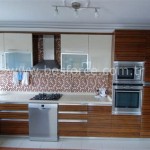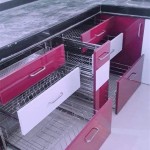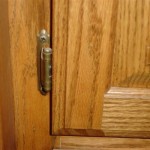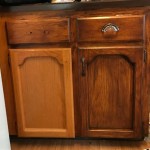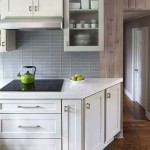Essential Aspects of Kitchen Cabinets Layout
Kitchen cabinets are a crucial element in creating a functional and stylish kitchen. They provide ample storage space for your cookware, appliances, and pantry essentials. When planning the layout of your kitchen cabinets, several key aspects need to be considered to ensure optimal functionality and aesthetics.
1. Work Triangle
The work triangle is a fundamental concept in kitchen design that refers to the arrangement of the three main work zones: the stove, sink, and refrigerator. These three elements should form a triangular shape to minimize travel time and maximize efficiency during meal preparation.
2. Storage Needs
Consider your storage requirements before determining the number and size of your kitchen cabinets. Take inventory of your current cookware, appliances, dishes, and pantry items to estimate the amount of storage space you need. Allocate adequate cabinet space for each category, including drawers, shelves, and pull-out organizers.
3. Cabinet Types
There are numerous types of kitchen cabinets available, each serving different purposes. Wall cabinets offer vertical storage above countertops, while base cabinets provide storage below the counters. Corner cabinets utilize otherwise unused space in corners, while pantry cabinets provide tall, narrow storage for dry goods and bulky items.
4. Cabinet Materials
The material of your kitchen cabinets impacts both their durability and aesthetic appeal. Popular options include wood (e.g., oak, maple), laminate, and thermofoil. Wood cabinets offer a classic, timeless look, while laminate and thermofoil are more budget-friendly and moisture-resistant.
5. Cabinet Finish
The finish of your kitchen cabinets can enhance the overall style of your kitchen. Choose a finish that complements the color scheme and decor of your space. Paint finishes can be customized to any desired color, while stains highlight the natural grain of wood. Laminate finishes offer a wide range of colors and patterns.
6. Hardware
Hardware plays a vital role in both the functionality and aesthetics of kitchen cabinets. Drawer pulls and knobs enhance user experience and can add a touch of personal style to your kitchen. Consider the size, shape, and material of your hardware to complement the overall design of your cabinets.
7. Lighting
Proper lighting is essential for illuminating your work areas and showcasing your kitchen decor. Under-cabinet lighting provides task lighting for food preparation and can highlight countertops. Pendant lights or recessed lighting can serve as general illumination, while accent lighting can create a cozy atmosphere.
8. Ventilation
Adequate ventilation is crucial in kitchens to remove cooking odors and prevent condensation. Install a range hood over your stove to capture cooking fumes and moisture. Consider additional ventilation options, such as opening windows or installing ceiling fans, to improve air circulation.
9. Professional Help
If you require assistance in planning the layout of your kitchen cabinets, consider seeking the services of a professional kitchen designer. They can provide expert advice, create detailed plans, and ensure that your kitchen meets your specific needs and preferences.

Kitchen Cabinet Design Tutorials

How To Design A Traditional Kitchen With Diy Cabinets

Kitchen Cabinet Ideas The Home Depot

Kitchen Cabinets 101 Cabinet Shapes Styles Cabinetcorp

Standard 10x10 Kitchen Cabinet Layout For Cost Comparison Designs Plans Small Layouts

7 Kitchen Layout Ideas That Work

Useful Kitchen Dimensions And Layout Engineering Discoveries Cabinet Best Plans

Kitchen Layout Builds S Sketchlist3d

Best Kitchen Layout Ideas For Your Home Livspace

Free Editable Kitchen Layouts Edrawmax
Related Posts

